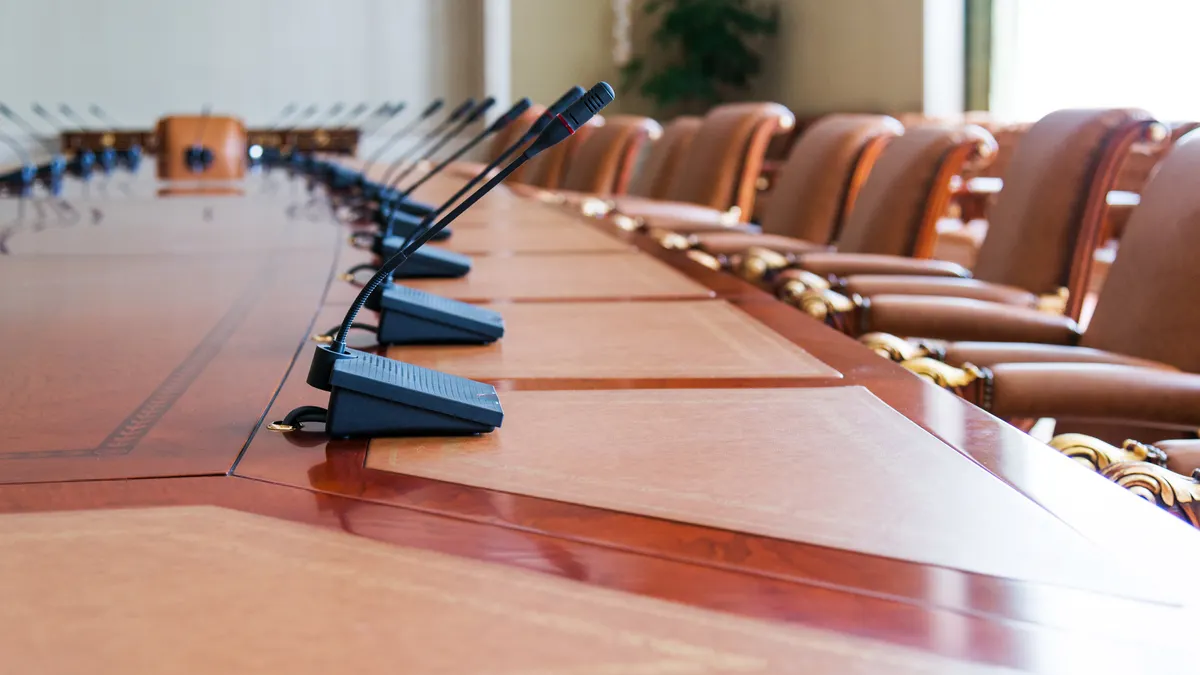The Securities and Exchange Commission has asked a judge to deny two former Qwest Communications managers’ request to have their civil charges addressed separately from that of their former bosses, ex-CEO Joseph Nacchio and ex-CFO Robert Woodruff.
In a brief filed in the U.S. District Court for the District of Colorado, SEC attorney Christopher Friedman argued that giving James Kozlowski and Frank Noyes a separate trial would be inefficient and redundant. The SEC accuses the onetime financial reporting directors of partaking in a $3 billion accounting fraud that clinched Qwest’s merger with US West in June 2000. The former employees allegedly fed the top executives’ scheme to beat earnings and revenue projections by recognizing revenue sooner than they should have in transactions involving the use of fiber cable.
More than two years ago, the SEC filed its allegations of fraud and securities-laws violations against Nacchio, Woodruff, Kozlowski, Noyes, former COO Afshin Mohebbi, former CFO Robin Szeliga, and former executive vice president Gregory Casey. Since then, Szeliga and Casey have settled the civil charges, and Nacchio has been sentenced to six years in prison for an insider-trading conviction following Szeliga’s testimony against him. (Szeliga received two years’ probation after pleading guilty to one count of insider trading.) Qwest also settled its own, separate SEC fraud charges by agreeing to pay the regulator $250 million.
The latest motion filed in the SEC’s case against the former Qwest employees regards the extent of Kozlowski’s and Noyes’s involvement in the fraud. In the SEC’s amended complaint filed in April 2006, their names are mentioned less than half as often as those of their former coworkers. Unlike some of the other defendants, Kozlowski and Noyes are not accused of insider trading or of fraudulently manipulating transactions to meet revenue targets, their attorneys wrote in their motion for a separate trial. Indeed, the SEC’s complaint clarifies that Nacchio, Woodruff, and Szeliga are the ones who “completely controlled the earnings release process and solely determined what information to release to the investing public,” the attorneys noted.
Still, the SEC does accuse Kozlowski and Noyes of improperly recording revenue in Qwest’s financial statements for large-capacity deals called IRUs, or indefeasible rights of use agreements for fiber cable. The commission goes on to say that the company’s “obsession” with meeting its internal financial targets led Qwest executives to consider the financials related to these fiber contracts to be a top priority and to take steps to meet those goals.
For example, Noyes allegedly “directed” a contract with Enron Broadband Services to be backdated so that Qwest could recognize the revenue immediately, and did not let the company’s internal accountants know about the alleged impropriety. The SEC accuses Kozlowski of devising and implementing other false and immediate revenue recognition for IRUs until he left the company in September 2000. Both Noyes and Kozlowski are accused of not implementing an internal-controls system at Qwest and of leaving necessary disclosures out of financial statements.
The SEC’s latest brief in the case comes nearly three weeks after Kozlowski’s and Noyes’s attorneys asked the court to consider giving their clients a separate trial. They claim the two were midlevel employees or accountants who shouldn’t be tried with the former top executives. Trying all five defendants would be problematic because so much of the evidence that will be presented won’t apply to their clients, they wrote. “There would be a very real and substantial danger of jury confusion and impermissible spillover of evidence that would be inadmissible in a separate trial of the two gentlemen, thus depriving them of their right to a fair trial,” the attorneys claimed. The attorneys did not respond to CFO.com’s request for comment.
In his reply, the SEC’s Friedman said Kozlowski and Noyes were mischaracterized as “midlevel” employees and actually had “significant responsibility” during their tenures at Qwest. Their attorneys have not shown that splitting up the trial would be convenient for witnesses or the court, or help speed the process along, wrote Friedman; rather, it would lead to witnesses having to testify more than once and the possibility of having two trials with “separate, inconsistent verdicts.”
To be sure, Friedman added, two trials would be more expensive for the SEC to address and could give the defendants an unfair advantage. If Kozlowski’s and Noyes’s case were heard second — as their attorneys have requested — then they would have an “opportunity to preview the commission’s evidence during the initial trial and then respond to it in any subsequent trial.”



















